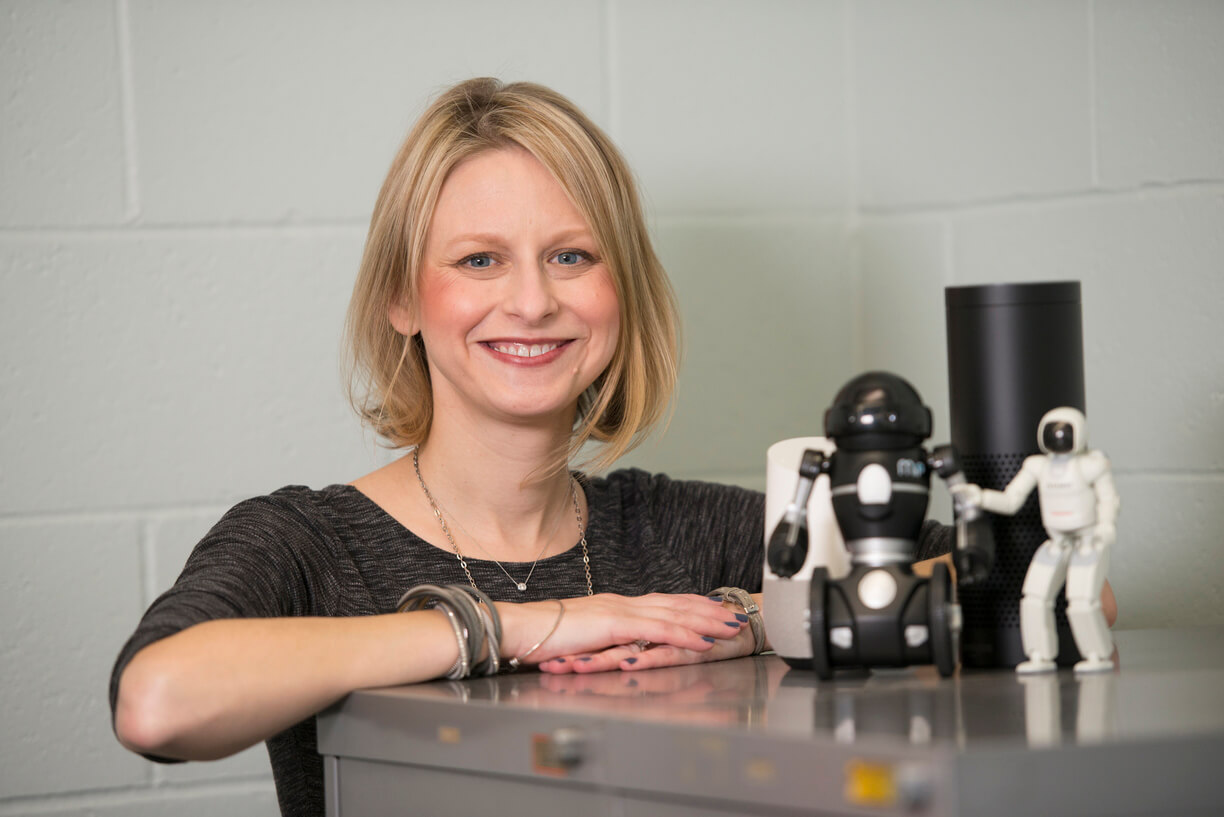DeKalb, Ill. — NIU Professor Andrea L. Guzman, a leading expert on artificial intelligence and communication, says a new skill set is needed to navigate the Information Age—algorithmic literacy.
An algorithm is a set of rules or instructions, often used by a computer, to perform a task or solve a problem. Algorithms used by companies and marketers often shape what people experience online. But the increasing uses of algorithms, both inside and outside the home, come with pros and cons—and gray areas, too, Guzman says.
“Algorithms help entertainment providers make recommendations for music and movies, help employers make hires and help political leaders mobilize supporters,” Guzman says. “But with the convenience comes tradeoffs. For these algorithms to work, they need data, raising potential privacy concerns. They also can be used to target people for misinformation campaigns. The decisions by automated technologies may also reflect certain biases.”
Guzman, a professor in NIU’s Department of Communication, teaches on the topic of algorithmic literacy in her classes on emerging media technologies, social media and artificial intelligence and automation.
 Her lessons aren’t about the details of programming computers. Rather, she focuses on teaching students how we encounter algorithms in daily life and how they can be used used to mine data, recognize patterns, shape perspectives and gather personal information through people’s clicks, likes, shares, views and voice commands. Ethical questions and concerns are key parts of classroom discussion.
Her lessons aren’t about the details of programming computers. Rather, she focuses on teaching students how we encounter algorithms in daily life and how they can be used used to mine data, recognize patterns, shape perspectives and gather personal information through people’s clicks, likes, shares, views and voice commands. Ethical questions and concerns are key parts of classroom discussion.
“Algorithmic literacy is understanding what algorithms are, how they are used, how they can benefit people, and how they can negatively impact individuals and certain groups,” Guzman says.
This knowledge is critical in today’s society, she argues, pointing to a new national study that indicates college students themselves recognize the need for algorithmic literacy. The study was conducted by Project Information Literacy (PIL), a nonprofit research institute that has spent more than a decade surveying the research habits of college students in an increasingly digital world.
College students know websites use algorithms to collect massive amounts of their personal data, but they still find sites too useful to abandon, according to a key finding in the PIL study. Some students surveyed take steps to circumvent the constant stream of unwanted ads, but practical strategies are most typically learned from relatives and peers—not in classrooms.
Students surveyed also feel their education does little or nothing to help them find trustworthy information in the torrent of news and opinion they encounter online. While many students have concerns over disinformation and privacy, findings from the study suggest they do not fully understand how big data and artificial intelligence (AI) are being used by systems throughout society.
Guzman, selected to be among a group of “leading thinkers” whose reflections on the research are included in the PIL report, says algorithmic literacy is expected to become even more vital as the use of artificial intelligence technologies grows and key functions in daily life become further automated.
Mere awareness of “these things called algorithms” is not enough, she says.
“At the individual level, algorithmic literacy helps people to make informed decisions regarding how they use and interact with certain technologies. It also helps people to evaluate how companies, institutions and the government are using these technologies and, in doing so, enables them to advocate for responsible technology design and use that avoids problematic biases and helps to safeguard privacy.”
A former journalist, Guzman serves as the inaugural chair of the International Communication Association’s interest group on human-machine communication. She also is editor of a new book titled, “Human-Machine Communication: Rethinking Communication, Technology, and Ourselves.”
Media Contact: Tom Parisi
About NIU
Northern Illinois University is a student-centered, nationally recognized public research university, with expertise that benefits its region and spans the globe in a wide variety of fields, including the sciences, humanities, arts, business, engineering, education, health and law. Through its main campus in DeKalb, Illinois, and education centers for students and working professionals in Chicago, Hoffman Estates, Naperville, Oregon and Rockford, NIU offers more than 100 areas of study while serving a diverse and international student body.


